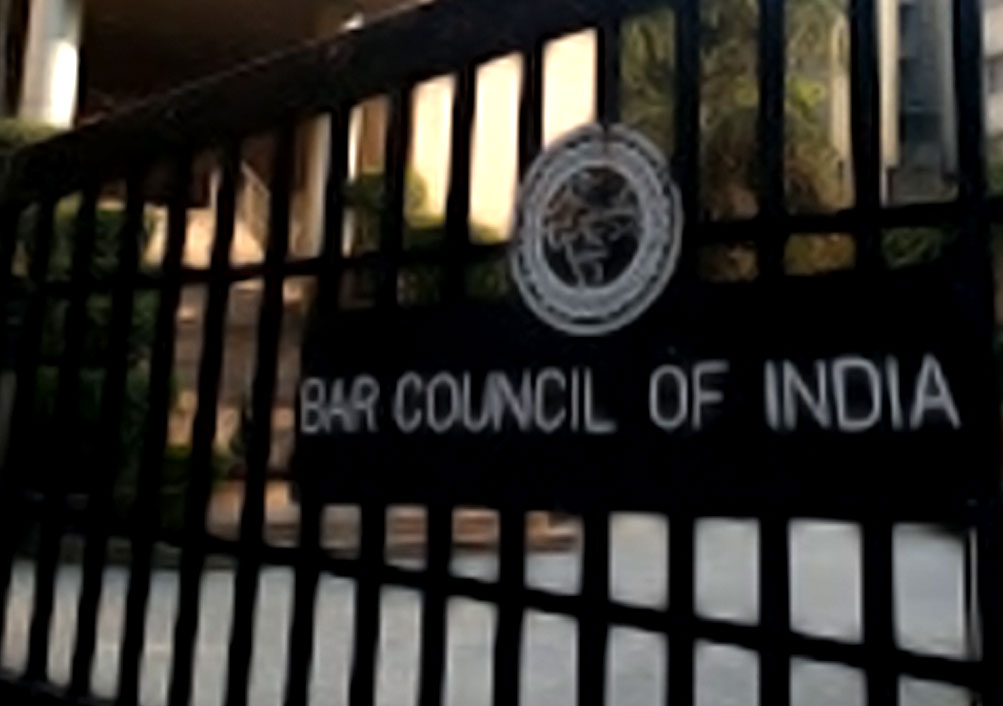Not disposing of complaint within stipulated time would tantamount to failure on part of BCI/State Bar Councils to perform duty cast under Advocates Act: SC

Read Judgment: K. Anjinappa vs. K.c. Krishna Reddy And Another
Pankaj Bajpai
New Delhi, December 23, 2021: The Supreme Court has opined that disposal of a complaint received by the State Bar Council u/s 35 of the Advocates Act, 1961 within a period of one year from the date of receipt of such complaint is mandatory, and therefore, the transfer of the complaints received u/s 35 from the State Bar Council to the Bar Council of India is an exception.
A Division Bench of Justice M.R Shah and Justice B.V Nagarathna observed that under the Advocates Act, a duty is cast upon the Bar Council of India/State Bar Councils to safeguard the integrity of the legal profession, and hence, failure to dispose of the complaint received u/s 35 and/or Section 36 within stipulated time would tantamount to failure on their part to perform the duty cast under the Advocates Act.
Going by the background of the case, K. Anjinappa (Appellant) filed a complaint against his Advocate on the ground of professional misconduct, initially before the Bar Council of State of Andhra Pradesh. Since the State Bar Council did not dispose of the said complaint. Therefore, the said complaint came to be transferred to the Bar Council of India as per Section 36B of 1961 Act. However, the complaint was dismissed on the ground that the complaint was filed by two complainants, namely, Appellant and one S. Lakshmi Naryana (2nd Complainant), however, the said complaint was not signed by the second Complainant.
Since the matter was pending since 2013 to 2015, the Disciplinary Committee of the Bar Council of India dismissed the complaint, without further entering into the allegations made in the complaint, by observing that the complaint is not at all maintainable. Hence, present appeal.
After considering the submissions, the Apex Court found that as per Section 36B of the Advocates Act, the Disciplinary Committee of the State Bar Council have to dispose of the complaint received by it u/s 35 expeditiously and in each case the proceeding shall have to be concluded within a period of one year from the date of the receipt of the complaint or the date of initiation of the proceedings at the instance of the State Bar Council, as the case may be.
Failing to dispose of the complaint within a period of one year, such complaint is required to be transferred to the Bar Council of India for its disposal as if it was a proceeding withdrawn for inquiry u/s 36(2), added the Court.
Speaking for the Bench, Justice Shah highlighted that since COVID-19 pandemic commenced only in March, 2020, one can appreciate the delay in disposal of the transferred complaint(s) received in the year 2020 and 2021 due to COVID-19 pandemic but not for the earlier period.
“For an efficient and quick disposal of the complaints by the Bar Council of India vis-à-vis those complaints which have been transferred to it as per section 36B of the Act, the Bar Council of India may consider empanelling experienced and seasoned advocates and/or retired judicial officers to act as Inquiry Officers where an inquiry would be necessitated. On such inquiry being concluded the report of the Inquiry Officers could be received by the Bar Council of India. On consideration of the said inquiry report, the Bar Council of India could pass appropriate orders on the complaint”, observed Justice Shah.
Hence, the Apex Court called the Bar Council of India to issue suitable directions to the State Bar Council to enlist a panel of Inquiry Officers for the purpose of conducting the inquiry on behalf of the Bar Council of India in the respective States itself and on conclusion of the said inquiry to transmit the inquiry report to the Bar Council of India for enabling it to take it further action in the matter.
Sign up for our weekly newsletter to stay up to date on our product, events featured blog, special offer and all of the exciting things that take place here at Legitquest.




Add a Comment